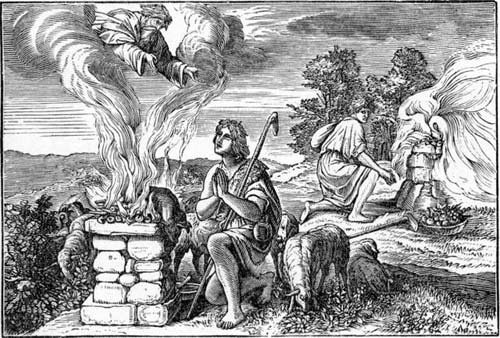Luke 18:9-14
Pastor James Preus
Trinity Lutheran Church
August 28, 2022
“For everyone who exalts himself will be humbled, but the one who humbles himself will be exalted.” Few statements so succinctly articulate the Christian religion as well as this. But what does it mean to exalt oneself? And what does it mean to be humble? To exalt oneself means to lift yourself up high. To humble yourself means to bring yourself low. Well, Jesus isn’t talking about riding on the elevator. What does he mean by this? Jesus tells this parable to those who trusted in themselves that they were righteous and treated others with contempt. That is what it means to exalt yourself, to lift yourself up high. To exalt yourself means that you trust in yourself to be righteous before God. You think your works are good enough. You think God ought to be impressed with you and that you deserve to go to heaven. That is what it means to exalt yourself. And it is no surprise that those who exalt themselves treat others with contempt, meaning, they hate others and look down upon them. They elevate themselves by imagining that others are far beneath them.
To humble yourself then means that you do not trust in yourself to be righteous before God, rather, like the tax collector in Jesus’ parable, the humble confess to be sinners, which is the opposite of righteous. Yet, we must learn a bit more about what it means to be humble. It is only the humble who will be saved. And there are many forms of false humility.
One of the cognates of the word humble is humiliation. When I ask my confirmation students what it means to be humiliated, they always say, “to be embarrassed.” And it is true, to be embarrassed does feel like you are being brought low. That is why we use the word humiliated when describing being embarrassed. But to be humble in the Christian sense does not simply mean to be embarrassed over your sin. Indeed, you should be embarrassed over your sin. We should have shame. That is one of the faults that God found with his people in Jeremiah 8, the prophet writes, “Were they ashamed when they committed abomination? No, they were not at all ashamed; they did not know how to blush.” So, we should not forget how to blush. We should certainly be ashamed of our sin. Yet, shame is not enough. We must acknowledge our shame before God. Too often when people are embarrassed over their sin, they refuse to acknowledge it. They deny that they’ve sinned, because they’re too embarrassed. It is as Psalm 32 goes, “For when I kept silent, my bones wasted away through my groaning all day long. For day and night your hand was heavy upon me; my strength was dried up as by the heat of summer. I acknowledged my sin to you, and I did not cover my iniquity; I said, ‘I will confess my transgressions to the LORD,’ and you forgave the iniquity of my sin.” So, to be humble, we must not only be embarrassed over our sins, but we must acknowledge them to the Lord, and ask for forgiveness.
Next, to be humble does not mean to continue in sin as if good works don’t matter. Often, people will say, “Oh, yeah, I’m a sinner.”, or “I’m not a good person.”, but they don’t actually show any repentance. They call themselves sinners as if despairing that they could be anything else. Or worse, people who call themselves sinners will criticize good works like those listed by the Pharisee. The Pharisee was not justified, but not because the things he listed were bad things! It’s evil to steal or extort money. The Pharisee was right about that. It is evil to lie and treat people unjustly. The Pharisee was right about that. It is not good to commit adultery or to fornicate. The Pharisee was right about that. Fasting is good for bodily preparation. It teaches your body that it is not in control of your soul. The Pharisee is not wrong to fast.
The Pharisee tithed, that is, he gave a tenth of everything he got to the LORD. That certainly isn’t a bad thing. If every Christian tithed, we would be able to build more churches and establish more missions. We learned at our last district convention about how many Lutheran schools have closed over the past few decades, so that Lutheran parents have little choice but to send their children to public schools where atheistic evolution is taught as fact, where God is not the center of history, where the Ten Commandments and prayers are never heard, and where Jesus’ Gospel is silenced. If every Christian tithed, perhaps we’d still have some of these Lutheran schools to strengthen our children in the faith. And even now, when church attendance is much lower than it has been in decades past, many congregations are still chugging along on account of the tithes of the few faithful who are left. Our children and grandchildren may yet have churches to attend after we’re gone because of those who tithe. Thank God for tithing Christians. But it is not tithing that makes you a Christian or justifies you before God! Of course, you should tithe! If it was commanded of Israel, how much more should we freely give, who have been set free from the commands of the Law and have been granted eternal life?
And of course, you should discipline your bodies and not be gluttons and drunks. Man does not live by bread alone, but by every word that comes from the mouth of the Lord. And of course, you shouldn’t commit adultery or fornicate. Why would you even think of such a thing. And of course, you shouldn’t be unjust or an extortioner. What are you thinking to brag to God about such things. What do you want, a cookie? The Pharisee foolishly exalts himself before God for doing what he should be doing anyway. Rather, Jesus teaches, “So you also, when you have done all that you were commanded, say, ‘We are unworthy servants; we have only done what was our duty.’” (Luke 17:10)
The Pharisee was mistaken, because no one will be justified before God by works of the Law (Galatians 2:16; Romans 3:20). While the Pharisee took care to list his own good works, he forgot that God looks upon the heart and sees in secret. Scripture says, “Surely there is not a righteous man on earth who does good and never sins.” (Eccl. 7:20) If the Pharisee sought to see through God’s eyes and not through his own, then he would have recognized that he was as bad of a sinner as that tax-collector. But we don’t need to tear down good works to prove that. A humble spirit lifts up good works; it doesn’t tear them down. However, a humble spirit does not trust in its own good works.
To be humble does not mean that you doubt God’s Word or your own salvation. To be humble means that you do not trust in yourself. It means that you do not boast in yourself. But it does not mean that you do not boast at all. Scripture says, “Let the one who boasts, boast in the Lord.” (2 Corinthians 10:17) Often times Christians think that they should not make a firm stand on God’s Word, because they don’t want to appear arrogant or prideful. But it is not arrogant to stand on God’s Word. God forbid you to waver on God’s Word. The Lord says through the Prophet Jeremiah, “but let him who boasts boast in this, that he understands and knows me, that I am the LORD who practices steadfast love, justice, and righteousness in the earth. For in these things I delight, declares the Lord.” (Jeremiah 9:24)
This means that you should not doubt your own salvation. You should not be afraid to confess that God has forgiven you, that you are God’s own child, and that you will go to heaven. You are not being humble if you deny these things, rather, if you deny the Gospel, you are exalting yourself above God. It is not being humble to doubt that Baptism saves. God declares that Baptism saves you. It is not being humble to doubt that the Lord’s Supper is Christ’s true body and blood. Jesus clearly tells you that they are. It is not being humble to suggest that maybe you need to do some good works in order to be saved. That is denying what Scripture clearly teaches, that we are saved by grace apart from works of the Law. (Ephesians 2:8-9; Romans 3:23-28) It is false humility to doubt and waver on God’s Word. That is not humbling yourself, but looking down on God’s Word.
This also means that to be humble means to seek to learn God’s Word. If you are humble, you stand firmly on God’s promises. That does not mean that you claim that you already know enough. To be humble means that you acknowledge that you are still a sinner, who has a lot to learn. The Proverb says, “The fear of the LORD is instruction in wisdom, and humility comes before honor.” (15:33) So, to be humble means that you recognize that you must be taught to keep yourself on the right path and to stay clear of Satan. The humble are not content in being simple and ignorant. The humble desire to learn.
To be humble means to trust in the atoning sacrifice of Jesus Christ. When the tax collector prayed, he beat his breast and said, “God, be merciful to me, the sinner.” Yet, interestingly, the word he used for be merciful is not the word commonly used to ask for mercy. The word used by the tax collector means, “Be propitiated to me.” To propitiate means to take away wrath. We know the word from 1 John 2, “Jesus Christ is the propitiation for our sins and not our sins only but also for the sins of the whole world.” The tax collector and Pharisee are standing in the temple praying during the time of the sacrifice. There is no forgiveness of sins without the shedding of blood. And the shedding of blood in the sacrifice points to the shedding of blood of Christ Jesus, the sacrifice to end all sacrifices. So, what the tax collector is praying is, “God, forgive me for the sake of the atoning death of your Son.”
When we ask God to forgive us, we are not throwing a Hail Mary, hoping that perhaps God will be in a good mood. No, we hinge our hope on Christ Jesus alone, who suffered and died for all our sins. This is why the humble are confident. The humble do not trust in themselves that they are anything, but they trust in another, namely, Jesus Christ to make them righteous with his own blood.
Christ Jesus has taken our sins away. The Father is satisfied with the sacrifice of his Son. To be humble means to trust in Christ’s righteousness to save you and not your own righteousness. And that gives you confidence that you truly are righteous before God.
The tax collector was a real sinner. He betrayed his family and countrymen. He cheated people out of money and used the power of the government to bully people to obey him. Yet, Jesus declares to us that he went home justified. That means God was at peace with him. God saw him as a sinless saint. It means that he was saved and lifted up high to his heavenly home. You are a real sinner. To be humble means to admit that. You’ve committed real sins for which you should be ashamed. You can’t point to anyone worse. You can’t blame anyone else but yourself. You deserve to go to hell. Yet, what does Jesus say? He who humbles himself, confesses his sins, trusting in the atoning sacrifice of Christ goes down to his house justified. God forgives even your sins. Trusting in the blood of Christ, you are exalted by God to live with him forever. Amen.




 RSS Feed
RSS Feed